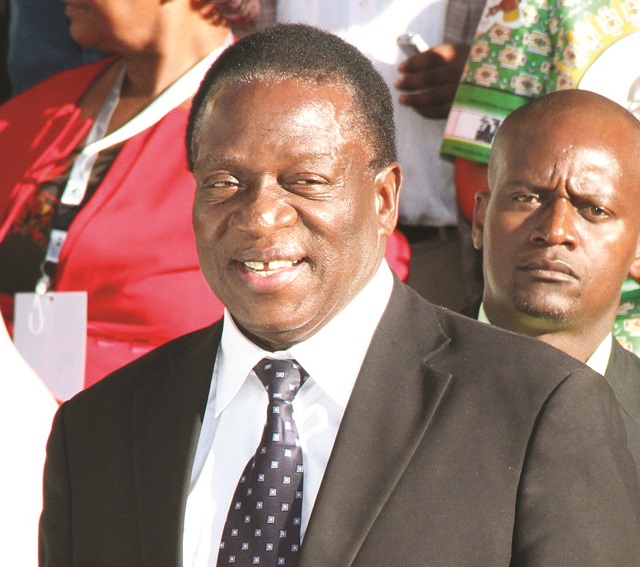Private sector ‘owes’ Zimra $4,2 billion in tax arrears

Prosper Ndlovu, Business Editor
THE Zimbabwe Revenue Authority has exposed private sector players, 80 percent of whom owed the tax collector $4,2 billion as at end of March 2018, at a time the country desperately needs resources to oil the economy.
Private sector representatives, however, shot back yesterday and are disputing the figures. Instead they accused the tax administration of miscalculating their dues, interests and penalties since dollarisation in 2009, and demanded sincere dialogue in resolving the matter.
Fierce debate ensued around the matter during a Zimra breakfast conference in Bulawayo yesterday where both parties sought to understand each other and resolved to amicably iron out their differences.
In her remarks during the meeting, Zimra’s newly appointed Commissioner General, Ms Faith Mazani, said non-tax compliance has become a serious impediment to national development, adding the tax debt burden had reached “unprecedented” levels.
“Allow me ladies and gentlemen to speak about a serious issue confronting our country and this is the low level of compliance in our revenue mobilisation. Zimbabwe is sitting on unsustainable and unprecedented tax debt situation.
“As at end of first quarter ended March 31, 2018, the authority’s tax debt was sitting at $4,227 billion and of this 80 percent is owed by the private sector,” said Ms Mazani.
“Such a tax debt position is reflective of an abnormal revenue administration and very low levels of compliance that requires our urgent attention.”
According to Ms Mazani, official statistics indicate the number of registered taxpayers, which currently is not even exceeding 300 000, does not at all match with level of income and business activities in the country.
“It is only just a quarter of registered business players complying with their tax filing obligations. This leaves the tax burden on the shoulders of a few companies and individuals,” she explained.
“I, therefore, pose this question to those of us here and those at home. Are we playing our part to build a sustainable Zimbabwe through payment of our taxes due to the fiscus?”
Business executives contend the $4,2 billion debt is not a true reflection of what they owe and accuse Zimra of adopting a hard-line stance on corporates at a time the economy is facing challenges. They also complained that the tax authority was levying high rates and punishing them over its systems shortcomings.
“About the $4,2 billion debt, I don’t believe that is true, the accounting systems at Zimra are not proper. We have been going to Zimra with our receipts for tax clearance time and again and there seems to be lack of will to rectify the issue. It is these delays that affect clients. The idea behind tax clearance has to change,” complained one participant. Another one weighed in: “Zimra’s tax level is the highest in the region”.
Sithulisiwe Ncube from Lion Stores said Zimra needs to deal with its data system, saying some of the said business tax arrears have accrued since 2009 based on miscalculated figures.
“I don’t know what’s happening with Zimra data system. The error is on Zimra side because they are not doing entries on time and interests are high. That has to be resolved,” she said.
Others demanded that Treasury should ensure proper use of taxpayers’ money so as to motivate compliance, insinuating that at times public funds are abused.
They said people need to see more development on the ground in terms of schools development, clinics and infrastructure projects.
In her response Ms Mazani acknowledged the public concerns and said Zimra has since started a process, with the help of ICT experts, to clean up its data system. She concurred that calculation errors could have been made when the country adopted dollarisation and said Zimra “deeply regrets” such developments and was working hard to resolve the issue. Ms Mazani said further engagements were being done with the IMF to get proper systems advice.
“We are doing our best to clean our systems and we hope by the end of the year we will give accurate accounts and issue clearance based on proper balances.
“Our debt position is bad, which is why we are here and we are saying those affected should come forward and these penalties and interests can be waived,” she said.
“It is our hope that these will be resolved soon but that doesn’t change compliance levels. It is still a few businesses which are bearing the tax burden. Our compliance levels are not yet at their best.”
Ms Mazani urged businesses to take advantage of the tax amnesty window granted at the beginning of the year to resolve their arrears.
The amnesty window expires in June this year. Zimra has also put measures to weed out corruption through automation, asset declarations and lifestyle audits to identify cases of unjust enrichments.
“I would like to sincerely apologise for all the inconveniences that our valued taxpayers and clients have had to endure.
“As a revenue administrator we realise the need to receive and facilitate businesses that are responding to Government efforts to open Zimbabwe for businesses. Our focus is to improve service delivery that guides our operations going forward,” said Ms Mazani.
Key strategies include addressing people issues, improving processes through technology, developing strategic partnerships with tax payers and stakeholders and reforming the organisation through projects and programmes that ensure better service.











Comments